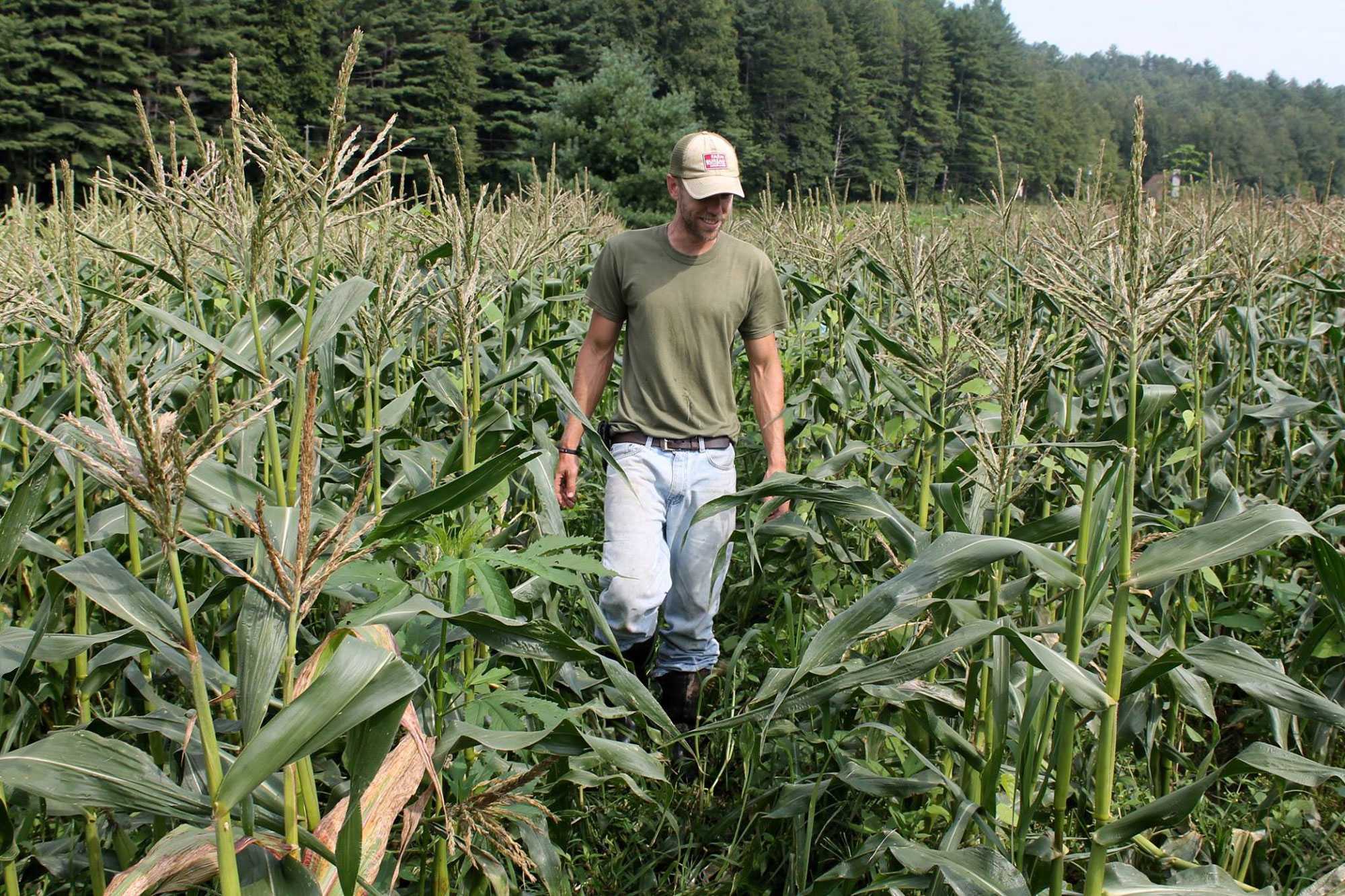Transitioning back to civilian life can be a tough prospect for veterans. Returning from combat zones overseas and having to navigate choices that were previously made for them can be daunting, even to those accustomed to putting their life on the line.
Cory Bryk, the owner of New Life Farm, said he found himself confused and overwhelmed by his newfound freedom after serving for eight months in the Al-Anbar province of Iraq.
He said he started gardening so that he and his health conscious wife could eat the organic produce they couldn’t always afford to buy. From there he found himself learning about the challenges and rewards that come with growing your own produce.
Bryk kept on learning by talking to local farmers and through online resources before eventually graduating with a degree in sustainable development from Appalachian State.
Anne Fanatico, a professor of sustainable development at Appalachian State, is currently working with the National Center for Appropriate Technology to create online modules to help people like Bryk pick up the skills they need to produce food for their communities.
“We need a lot of new farmers as we try to rebuild local and regional food systems,” Fanatico said.
Fanatico said that more smaller scale farms are crucial and she is particularly excited about working with veterans.
“I’m excited for veterans in particular because agriculture need them, and they need agriculture,” Fanatico said.
The NCAT also offers weeklong training courses for veterans, called Armed to Farm, which aims to impart the knowledge necessary to start a farm and build support networks of local veterans.
Margo Hale of the NCAT said that participants often stay in touch long after the training and that the group dynamic among the 30 participants is often the strongest of any of their programs.
“Sharing that common bond and those common experiences does a lot for the group and just naturally builds some relationships that aren’t as easy to come by in other beginning farming groups,” Hale said.
Hale said the sessions focus on imparting business sense, allowing veterans to meet with local farmers and talk about what works best in their specific region.
Hale said that there are also plenty of opportunities for hands-on experience, which can be supplemented by other workshops more specifically tailored to a skill.
The NCAT also has a plethora of publications for prospective farmers and Hale said many participants come in with their own game plan.
“Over and over I’m hearing ‘I’ve read all these books, I’ve read all your publications,’” Hale said. “Beginning farmers these days are quite educated and have done lots of research. Oftentimes they just need that little bit of encouragement to jump in.”
Fanatico said a big part of that process, for veterans in particular, is finding someone in the community who can mentor them through the sometimes rocky beginning stages.
This is a role that Bryk is looking to fill. He said he is currently talking with career services to find veterans in the area who are looking to get some farming experience under their belt.
“I’m trying to find more veterans who think they might be interested in farming,” Bryk said. “Hopefully I can employ them and pass along the skills and knowledge they need to perhaps pursue farming themselves.”
Bryk said he likes working with veterans because they are more disciplined and don’t see an agrarian lifestyle with the same rose-tinted glasses so popular among some transplants to farm life.
“I think a lot of people get into farming with this romantic notion … then reality sets in and you realize that this is hard work,” Bryk said.
On top of the grueling physical labor, Bryk said that simply producing strong crops is only half the battle. He also wants to teach strong business practices and stresses the importance of keeping good books and marketing effectively.
Overall, Bryk said that farming can be a stressful gig and he wants to do what he can to smooth out the learning curve for first generation farmers like himself.
Despite the challenges, Bryk said the feeling of producing something as essential as food lends a sense of pride that is difficult to take away.
Hale echoed that sentiment, saying that many veterans like the idea of contributing healthy, life building produce to their community.
Bryk said he likes the environment, which lets him lead the kind of lifestyle he wants.
“I really want to be close to my family. I didn’t get married and have kids so I could spend the vast majority of my time working a job I don’t like,” Bryk said.
He also said he is cautiously optimistic that, despite the large interests behind big agribusinesses, there will still be a call for small farms like his.
“There is, I believe, an educated and passionate consumer base that supports farms like mine and dictates whether we exist or not,” Bryk said.
By: Sammy Hanf, News Reporter

